Seminar “VEGF inhibition increases expression of HIF-regulated angiogenic genes by the RPE limiting the response of wet AMD eyes to aflibercept”
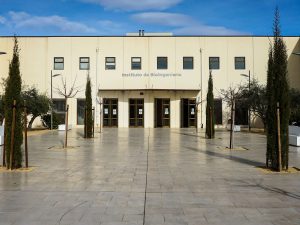
- Wednesday, December 11, 2024, at 12:00h
- Sala de Reuniones de Biología Aplicada del IB, Edif. Vinalopó
- Campus de Elche de la Universidad Miguel Hernández, España
- https://bioingenieria.umh.es
Seminar ‘VEGF inhibition increases expression of HIF-regulated angiogenic genes by the RPE limiting the response of wet AMD eyes to aflibercept’. Taught by Dr. Akrit Sodhi (Wilmer Eye Institute). For Friday, December 27, 2024, at 12:00h, in the Applied Biology Meeting Room of the IB, Vinalopó Building, Elche Campus of the Miguel Hernández University (UMH).
Dr. Akrit S. Sodhi is an ophthalmologist in Baltimore, Maryland and is affiliated with Johns Hopkins Hospital. He received his medical degree from University of California, Davis, School of Medicine and has been in practice for more than 20 years. Dr. Akrit S. Sodhi has expertise in treating glaucoma surgery, cataract, retinal detachment, among other conditions.
Ophthalmologists are medical doctors who diagnose and treat severe and complex eye and vision problems, including cataracts, glaucoma and detached retinas. Their surgeries include laser retina surgery, refractive surgery and lens replacement operations.
Seminar “Gender and intergenerational innovation to address addictions and transform the UNAD Network”.

- Wednesday, December 11, 2024, at 12:00h
- Salón de Actos del Instituto de Bioingeniería
- Elche, España
- Online Transmission https://meet.google.com/agk-wchr-rpt
Seminars “Gender and intergenerational innovation to address addictions and transform the UNAD Network”. Taught by Dr. Mari Cruz Pellín, Dr. Javier Esteban Mozo and Dr. Vanesa Zorrilla Muñoz (Institute of Bioengineering, UB, UMH). For Wednesday, December 11, 2024, at 12:00h, in the Assembly Hall of the Institute of Bioengineering Elche Campus of the University Miguel Hernández (UMH). The seminar will also be transmitted online for remote connection.
This seminar explores how the UNAD Network can address the growing challenge of addictions from an intergenerational perspective, integrating technological innovation and gender-sensitive approaches. The meeting will break down the main findings of the project “Diagnosis and design of the UNAD Network’s care resources”, which identified significant barriers in access to specialized treatment and the lack of programs adapted for the elderly.
Addictions, exacerbated by pre-existing health problems, social isolation and psychotropic drug abuse, especially in older women, require innovative strategies. This seminar presents disruptive proposals, such as hackathons, innovation circles and the use of artificial intelligence, to develop customized and accessible solutions, such as intelligent chatbots or inclusive digital platforms.
In addition, it emphasizes the need to adopt comprehensive approaches that address physical, psychological and social dimensions, with a gender perspective that addresses the specific barriers faced by older men and women.
In an interdisciplinary setting, this seminar invites not only to reflect on the challenges, but also to actively participate in the construction of a more effective and inclusive care, at the intersection of health, technology and human rights.
Seminar “Understanding evolution and domestication through genome dynamics”

- November 15, 2024, at 1:00 p.m.
- Salón de Actos del Instituto de Bioingeniería
- Elche, España
- https://bioingenieria.umh.es
Seminars “Understanding evolution and domestication through genome dynamics”. Taught by Dr. Aureliano Bombarely (Institute of Molecular and Cellular Biology of Plants, IBMCP, UPV-CSIC, Valencia). For Thursday, December 12 at 12:00h, in the Assembly Hall of the Institute of Bioengineering Campus of Elche of the University Miguel Hernández (UMH).
Plant domestication is a fascinating topic with hundreds of questions waiting to be answered with new genomic tools. My research interests focus on the genomic changes produced in plant species during domestication, from the selection of genes with desirable traits to the events that shape the genome of these plants, such as polyploidy, hybridizations, introgressions, transposon activation and genomic rearrangements, and how these processes translate into the amazing phenotypic diversity we can find today.
Furthermore, this approach not only provides a deeper understanding of the evolutionary mechanisms that gave rise to modern crop diversity, but also allows us to identify new strategies to improve agricultural productivity and disease resistance, two key aspects to address the global challenges of food security and climate change. Research in this field has the potential to reveal how plants have responded to human and environmental selection pressures over time, and how we can use this knowledge to design more efficient and sustainable crops.
Seminar “Simulating the root ecosystem to optimize plant response to heat stress”

- November 15, 2024, at 1:00 p.m.
- Bioengineering Institute Conference Room
- Elche, España
- https://bioingenieria.umh.es
Seminars “Simulating the root ecosystem to optimize plant response to heat stress”. Delivered by Juan Carlos del Pozo, Research Professor at the Center for Plant Biotechnology and Genomics, Polytechnic University of Madrid – Spanish National Research Council. For November 29, 2024, at 12:00 in the Assembly Hall of the Institute of Bioengineering Campus of Elche of the Miguel Hernández University (UMH).
Climate change is causing an increase in extreme heat events, which negatively affect plant development and productivity. Excessive heat severely inhibits cell division in the root meristem, compromising root growth, while promoting cell division in the quiescent center to maintain stem cell niches. As a consequence, this negative effect of high temperatures on root development leads to a reduction in the growth of the aerial part of the plant. It should be noted that most existing experiments studying plant adaptation to heat stress use uniformly high temperatures for both the aerial part and roots of plants. However, this approach does not fully simulate natural field conditions, where roots grow a decreasing temperature gradient in the soil.
To address this problem in the laboratory, we developed the TGRooZ device, which generates a controlled temperature gradient for in vitro and greenhouse assays. Our results demonstrate that roots grown in TGRooZ efficiently maintain their functionality even under high temperature conditions, maintaining, even enhancing, aerial shoot growth through auxin-dependent mechanisms. Importantly, gene expression and rhizosphere microbial composition in roots grown in TGRooZ are less affected compared to roots exposed to uniformly high temperatures. Finally, when heat is combined with other stresses (such as heat and phosphorus deficiency), plants experience severe nutritional imbalances, affecting molecular responses at the transcriptomic level and hormone levels. We have also analyzed the changes induced by these stresses in DNA methylation and induction of miRNAs, finding clear differences when the stresses were applied individually or combined. In summary, our data suggest that in heat stress trials it is essential to use systems that keep the root system protected from excessive heat and in darkness, getting as close as possible to natural conditions. This will allow us to generate more reliable and relevant data and knowledge of how plants respond to high temperatures combined with other stresses.
Seminar on the “missing hormone” and the evolution of jasmonates in plants

- November 15, 2024, at 1:00 p.m.
- Salón de Actos del Instituto de Bioingeniería
- Elche, España
- https://bioingenieria.umh.es
Seminars The “lost hormone” and the evolution of jasmonates in plants Roberto Solano Research Professor Department of Plant Molecular Genetics. Centro Nacional de Biotecnología – Consejo Superior de Investigaciones Científicas 15 November 2024, at 13:00, Salón de Actos del Instituto de Bioingeniería Campus de Elche de la Universidad Miguel Hernández (UMH).
The lecturer, Jaime Prohens Tomás, is Professor of Genetics, researcher at the University Institute for the Conservation and Improvement of Valencian Agrodiversity (COMAV) and director of the Department of Biotechnology at the Polytechnic University of Valencia. The seminar was organized by José Luis Micol Molina, professor of Genetics, researcher and member of the founding group of the IB, and director of the Department of Applied Biology of the UMH; it is an activity of the Master in Biotechnology and Bioengineering and the Doctoral Program in Bioengineering of the UMH.
Prohens and his collaborators have subjected several species of cultivated and wild plants of the genus Solanum, to which others such as tomato, potato and eggplant belong, to genetic and genomic analyses. They have established that mutations in PRICKLELESS (PL), a member of the LONELY GUY (LOG) family of genes involved in the synthesis of plant hormones called cytokinins, cause the loss of spines. They have also studied evolutionarily very distant lineages of plants with thorns: ornamentals such as the rose or spider flower, fruit trees such as jujube (also known as the thorn of Christ), and certain cereals that have small thorns on the edges of their spikes; the important role of LOG genes in the formation of thorns has thus been confirmed.
Seminar “Genetics of plant epidermal spines”

- October 23, 2024
- Bioengineering Institute Conference Room
- Elche, España
- https://bioingenieria.umh.es
Throughout the evolution of plants, some species have developed spines to defend themselves against herbivorous animals. This trait, however, hinders the harvesting and packaging of cultivated plants, limiting their productivity. The genetics of plant spine formation has been unraveled by an international consortium and recently published in the highly prestigious journal Science, which featured it on its cover. The conference “Genetics of plant spines” will be held on Thursday, October 24, at 12:00 pm, in the Assembly Hall of the Institute of Bioengineering (IB) of the University Miguel Hernández (UMH).
The lecturer, Jaime Prohens Tomás, is Professor of Genetics, researcher at the University Institute for the Conservation and Improvement of Valencian Agrodiversity (COMAV) and director of the Department of Biotechnology at the Polytechnic University of Valencia. The seminar was organized by José Luis Micol Molina, professor of Genetics, researcher and member of the founding group of the IB, and director of the Department of Applied Biology of the UMH; it is an activity of the Master in Biotechnology and Bioengineering and the Doctoral Program in Bioengineering of the UMH.
Prohens and his collaborators have subjected several species of cultivated and wild plants of the genus Solanum, to which others such as tomato, potato and eggplant belong, to genetic and genomic analyses. They have established that mutations in PRICKLELESS (PL), a member of the LONELY GUY (LOG) family of genes involved in the synthesis of plant hormones called cytokinins, cause the loss of spines. They have also studied evolutionarily very distant lineages of plants with thorns: ornamentals such as the rose or spider flower, fruit trees such as jujube (also known as the thorn of Christ), and certain cereals that have small thorns on the edges of their spikes; the important role of LOG genes in the formation of thorns has thus been confirmed.
Eduardo Fernández will participate at the ICAR Stand at the Longevity World Forum in Alicante

- 18 de octubre de 2024
- Ilustre Colegio Oficial de Médicos de Alicante (COMA)
- Alicante, España
- https://www.longevityworldforum.com/
Eduardo Fernández will participate at the ICAR Stand at the Longevity World Forum in Alicante
Tomorrow, October 18, the Director of the Institute of Bioengineering, Eduardo Fernández, will take part in the Longevity World Forum in Alicante, through the International Center for Aging Research (ICAR), supported by the Generalitat Valenciana. The event, held on October 17 and 18, provides an opportunity for Prof. Dr. Fernández to present the results of his project, funded by ICAR in 2023, alongside 36 other selected projects, with a total of one million euros in funding. These projects cover multiple disciplines, such as basic research, nutrition, psychology, sports, and more.
Additionally, Drs. María Blasco and Ana María Cuervo, members of ICAR’s Scientific Committee and internationally recognized experts in the field of aging, will participate as speakers at the event. Blasco, a molecular biologist and Director of the CNIO, is an expert in telomeres and telomerase, while Cuervo, a professor at the Albert Einstein College of Medicine, specializes in cellular processes related to aging.
Location: Ilustre Colegio Oficial de Médicos de Alicante (COMA)
Date: October 18, starting at 9:30 AM.
News participate in the 1st International Symposium on Challenges and Advances in Neuroscience

- October 18th at 9:30 AM
- Aula Magna de la Sede Reyes Católicos de Elche
- Elche, España
- https://medios.uchceu.es/actualidad-ceu/retos-y-avances-en-neurociencias/
On October 18th, Prof. Dr. Eduardo Fernández, Director of the Biomedical Neuroengineering Research Group and Director of the Institute of Bioengineering at the Miguel Hernández University (UMH), will participate in the 1st International Symposium on Challenges and Advances in Neuroscience, held at the Faculty of Health Sciences of Elche (CEU UCH).
At this event, which will take place in the Aula Magna of the Sede Reyes Católicos in Elche, Fernández will present his latest research on visual neuroprosthetics, providing an innovative perspective on how technology can transform the lives of people with sensory disabilities.
The symposium will bring together prominent international and national experts to discuss the mysteries of the brain and conditions such as Alzheimer’s disease and schizophrenia. Eduardo Fernández, a pioneer at the interface between engineering and neuroscience, will share the most recent advances in applied neurotechnology, highlighting how his research is breaking new ground in visual rehabilitation through cutting-edge devices.
Without a doubt, his participation will be one of the key presentations at this highly significant scientific event.
Symposium Cajal-Roche 2024

- 16 de octubre de 2024
- C/ Arrieta, 12 Madrid
- Madrid, España
- https://www.ranm.es/
Next Wednesday, October 16th, at 4:00 PM, the II Symposium of the Cajal-Roche Chair will take place, an event of great importance in the scientific and medical community. This edition will feature a prominent contribution from Dr. Eduardo Fernández, director of the Institute of Bioengineering at the Miguel Hernández University (@IB_UMH), renowned for his research in neuroscience and health technologies.
The symposium will be held at the Assembly Hall of the Royal National Academy of Medicine of Spain, an iconic venue where cutting-edge topics in biomedical research, neuroscience, and technological innovations in medicine will be discussed. Organized under the prestigious Cajal-Roche Chair, this event aims to foster knowledge exchange among experts from various disciplines and promote advances in the study of the brain and neurotechnologies.
Attending the symposium is a unique opportunity to learn firsthand about the latest developments in these fields and to hear from distinguished experts like Dr. Fernández, who will share his insights and experience on the challenges and opportunities in this domain.
We look forward to welcoming you to this unique event to continue exploring the frontiers of medical science and the legacy of great figures such as Santiago Ramón y Cajal.
XI Mediterranean Organic Chemistry Meeting (XI REQOMED)

- 16 al 18 de octubre de 2024
- Aula
- Elche, España
- https://xireqomed.umh.es
The Bioengineering Institute of the Miguel Hernandez University is delighted to announce the XI Mediterranean Organic Chemistry Meeting (XI REQOMED), a premier scientific congress dedicated to the presentation and discussion of cutting-edge research in Organic Chemistry. The event will cover both theoretical and practical advancements and is open to organic chemists and researchers from related fields across the Mediterranean region.
Key Details:
Location: Elche, Spain
Dates: October 16th-18th, 2024
Why Attend? Elche, known as the city of the Lady, offers an exceptional blend of history, culture, and natural beauty. With 9 kilometers of pristine beaches and three UNESCO World Heritage sites — the Historic Palm Grove, the Mystery Play of Elche, and the Pusol School Museum — there’s plenty to explore during your stay. Whether you’re visiting with family, friends, or on your own, Elche provides a wealth of unforgettable experiences.
About the Congress: XI REQOMED is your opportunity to engage with leading minds in Organic Chemistry and explore groundbreaking innovations from the Mediterranean region. Join us to share knowledge, collaborate with peers, and discover the latest trends in the field.
For more information and the full program, visit XI REQOMED Program.
We look forward to welcoming you to this exciting event in the Mediterranean Oasis
Conference “Innovative Bioengineering: Assessment, Emerging Trends and Strategies for a Successful Research Career”

- October 08, 2024
- Classroom 0.1, Altabix building.
- Elche
- https://bioingenieria.umh.es
Title: Innovative Bioengineering: Assessment, Emerging Trends and Strategies for Successful Research Careers
Speaker: Dr. Vanessa Zorrilla Muñoz, Innovation Agent-Innoagent (IB-UMH)
Description: the seminar will focus on highlighting the importance of innovation in the area of bioengineering and biotechnology, providing students with an insight into the key tools of evaluation and meta-evaluation that will allow them to assess the impact of their research. Through case studies and recent examples of applied innovation, they will gain an understanding of how technological advances in bioengineering are being used to solve current problems in areas such as medicine, agriculture and sustainability. In addition, emerging trends in the field will be addressed, highlighting areas with great future projection, such as sustainable biotechnology and personalized medicine. Finally, strategies for planning a successful research career will be offered, highlighting the importance of identifying and participating in calls for proposals, awards and grants, as well as the relevance of building networks and planning for the long term for those seeking to develop in the scientific-academic field.
Content: The seminar will begin by highlighting innovation in bioengineering through case studies and recent advances. Concrete examples will be presented showing how scientific discoveries are being applied in areas such as new gene therapies, biomaterials development, environmental biotechnology and other fields of impact. These examples will allow attendees to understand how innovation is transforming key sectors such as medicine, agriculture and sustainability, showing the potential of bioengineering to address global problems.
This will be followed by an exploration of evaluation and meta-evaluation tools in the field of scientific research. Methods for measuring the impact of biotechnology and bioengineering research will be discussed, highlighting the importance of advanced techniques and technological tools used in cutting-edge projects. In addition, strategies for self-evaluation and meta-evaluation will be presented, allowing students to improve the quality of their research and better direct their efforts towards high impact areas.
The seminar will also address emerging trends in biotechnology and bioengineering, focusing on areas of great future projection. Sustainable biotechnology, personalized medicine, biomanufacturing and bioengineering applied to space will be discussed, providing insight into the research opportunities that lie ahead in these fields. These trends reflect the crucial role of innovation in developing new solutions to global challenges, and will point to promising avenues for those seeking to advance their research careers.
Finally, keys on how to develop a successful research career in bioengineering and biotechnology will be offered, focusing on the identification of calls, awards and grants. Strategies to participate in these resources, essential to promote scientific projects and obtain funding, will be discussed. In addition, the importance of long-term planning will be emphasized, from the choice of a research area to the creation of networks and the search for grants and support that will allow continuity in the scientific career.
Conference “Eye4Sky: from research to the creation of a technology company”
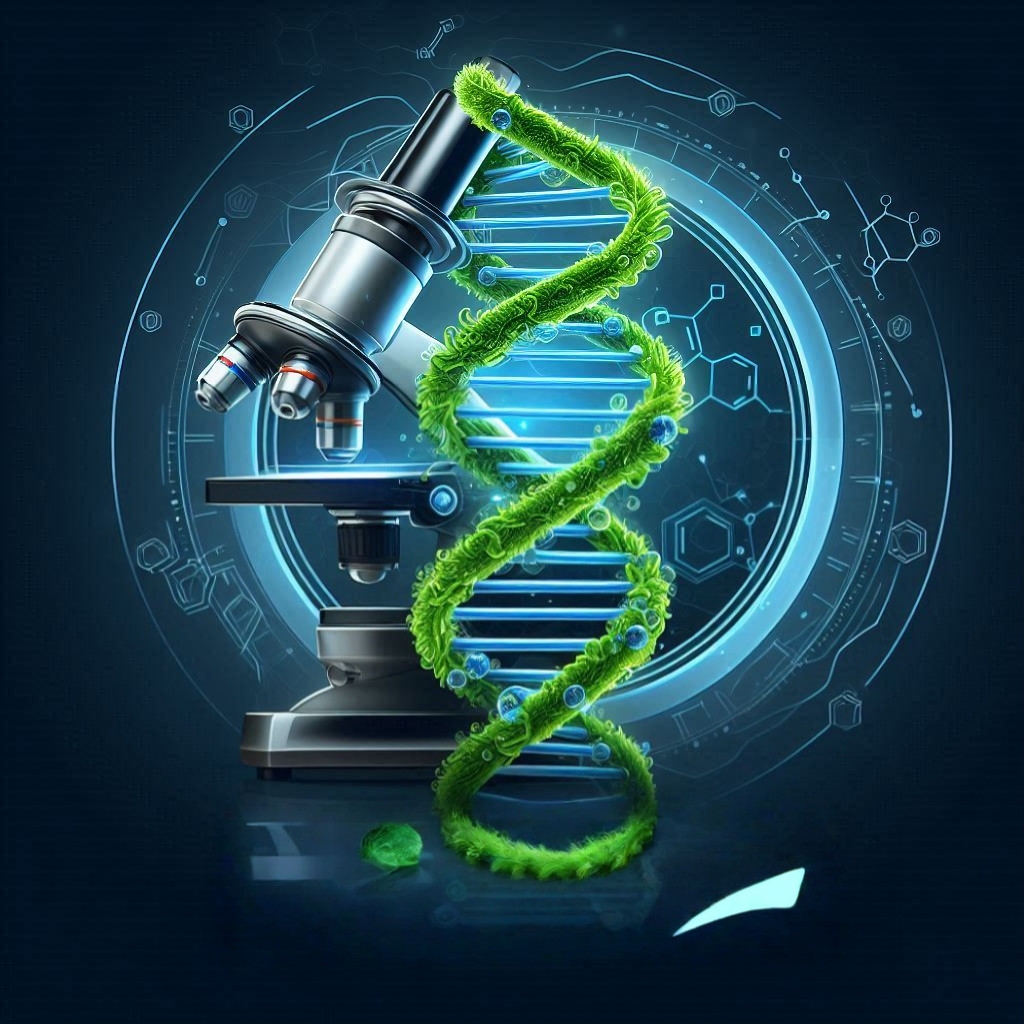
- October 11, 2024
- VALONA building.
- Elche
- https://bioingenieria.umh.es
On Friday, October 11 at 10:30 am, the conference entitled “Eye4Sky: from research to the creation of a space optical technology company” will be given by Dr. Alberto Álvarez Herrero, Research Professor at the National Institute of Aerospace Technology (INTA) and co-founder of the first spinoff of INTA, the company Eye4Sky Technologies S.L., which commercializes liquid crystal technology for space applications, will take place at the VALONA building located on the campus of Elche.
The conference is part of the 2nd Doctoral Conference of the Industrial and Telecommunication Technologies program (TECNIT), as well as the seminar program of the Institute of Bioengineering. It is organized by Professor Mª del Mar Sánchez López, researcher at the Institute of Bioengineering and member of the academic committee of the TECNIT PhD program.
In this conference, Dr. Alberto Álvarez Herrero will show how the deep-tech startup Eye4Sky arose, and will introduce the NASA and European Space Agency (ESA) Solar Physics projects in which the INTA Optics Department has been participating since 2002. In particular, the technology developed in space-qualified liquid crystal modulators will be described, as well as its applications and the projects in which Eye4Sky is currently involved.He will also reflect on the steps, difficulties and strategies that made this entrepreneurial project a reality and how all of this benefits INTA, its researchers and Society. The creation of spinoffs and startups promoted by the research groups themselves is considered one of the most effective tools and, therefore, is being promoted as part of the professional career of researchers.
Alberto Álvarez Herrero holds a PhD in Physics from the Complutense University of Madrid and is head of the Optical Technologies Development Area at INTA, where he develops space optical instrumentation. His research focuses on new technologies, techniques, materials and devices to be used in payloads for space missions. Polarimetry and ellipsometry are his main areas of expertise. The team he leads has developed the first liquid crystal-based polarization modulator for a space telescope. He is co-founder of the first spinoff of INTA, the company Eye4Sky Technologies S.L., which commercializes this technology for multiple space applications. The developed devices, among other relevant contributions such as the Full Disc Telescope, are on board the Solar Orbiter mission launched in 2020 and currently in operation. He has been working for many years on Solar Physics missions and is currently also involved in the development of quantum communication space systems. Author of more than 95 scientific publications referenced in Scopus, he has participated in 27 R&D projects, being principal investigator in 15 of them and consortium coordinator in four occasions.He is Co-Principal Investigator and member of the PHI Instrument Development Committee for the Solar Orbiter mission of the European Space Agency. Since 2003 he is a scientific collaborator and associate professor at the Complutense University of Madrid, where he has supervised three doctoral theses and has three more in progress.
Seminar “Remote control of neuronal activity with photopharmacology””

- October 01, 2024
- IB auditorium.
- Elche
- https://bioingenieria.umh.es
Dr. Pau Gorostiza to give a lecture on remote control of neuronal activity using photopharmacology
On Tuesday 01 October at 12:00h, Dr. Pau Gorostiza, leading researcher at the Institute for Bioengineering of Catalonia (IBEC), will give a lecture entitled “Remote control of neuronal activity with photopharmacology: from individual synapses to brain waves” in the auditorium of the Institute for Bioengineering, Vinalopó building, UMH.
Dr. Gorostiza, a reference in the field of photopharmacology, has focused his research on the development of nanoscale tools for the study of complex biological systems. He has specialized in the development of light-activated nano-tools, such as azobenzene, which allow the activity of biomolecules to be controlled remotely. These innovations have facilitated advances in photoactivated chemotherapy, photocontrol of cell signaling through ion channels and G protein-coupled receptors, as well as control of cardiac and locomotor activity, sensory restoration and brain wave photocontrol. In addition, he has applied the two-photon pharmacology technique to manipulate and study neuronal and glial activity with three-dimensional subcellular precision in intact brain tissue.
Seminar “Cognitive adventures os single neurons in the human medial temporal lobe”

- September 24, 2024
- IB auditorium.
- Elche
- https://bioingenieria.umh.es
The Institute for Bioengineering invites you next Tuesday 24/09/2024 at 12:00, in the auditorium of the IB, to the seminar entitled “Cognitive adventures of single neurons in the human medial temporal lobe” given by Dr. Florian Mormann from the University Hospital, Department of Epileptology University of Bonn, Germany and organized by Prof. Eduardo Fernández Jover (IB-UMH).
Dr. Mormann is specialized in cognitive neurophysiology, with a focus on the neurobiology of perception and memory. His work explores neural behavior in the medial temporal lobe to understand how conscious perceptions are transformed into episodic memory traces. In addition, in the field of clinical neurophysiology, he investigates the pathophysiological mechanisms leading to the onset of epileptic seizures, focusing on microscopic phenomena such as high frequency oscillations, micro-seizures, and cellular and neural network behavior.
Notable publications include studies such as “Distinct neuronal representation of small and large numbers in the human medial temporal lobe” in Nature Human Behaviour and “How coupled slow oscillations, spindles and ripples c¿oordinate neuronal processing and communication during human sleep” in Nature Neuroscience (2023).
News: OpenExpo Europe 2024: Exploring AI and Technology Innovation in Madrid

- 13 de junio
- Celebrado en la Nave (Madrid).
- Madrid
- https://openexpoeurope.com/es/
Miembros del Instituto de Bioingeniería participaron el 13 de junio en OpenExpo Europe 2024 celebrado en La Nave (Madrid). En su undécima edición, este evento continúa siendo fundamental en los avances sobre digitalización y, en esta ocasión, se presentaron las últimas innovaciones tecnológicas, con un énfasis destacado en IA generativa. Este evento atrajo a miembros del Instituto de Bioingeniería, quienes asistieron para explorar en profundidad el impacto de la IA en áreas críticas como el Cloud computing, la conectividad avanzada, la ciberseguridad y el desarrollo de software, entre otras.
Durante la jornada, representantes del Instituto y la Agente de Innovación tuvieron la oportunidad no solo de conocer de primera mano las tecnologías emergentes y sus aplicaciones prácticas, sino también de establecer contactos directos con expertos y líderes del sector de la IA generativa. Estos intercambios fueron fundamentales para ampliar sus perspectivas sobre el futuro de la tecnología y la innovación en salud y bioingeniería.
Además, el evento facilitó una plataforma única para el aprendizaje continuo y la colaboración con destacadas empresas y profesionales de toda Europa. Esta experiencia no solo fortaleció el posicionamiento del Instituto de Bioingeniería en la vanguardia de la investigación y el desarrollo tecnológico, sino que también abrió nuevas oportunidades para futuras colaboraciones y proyectos innovadores en el campo de la salud y la tecnología aplicada.
News: The Bioengineering Institute Participation in UniSalut Creativity and Idea Generation Workshops
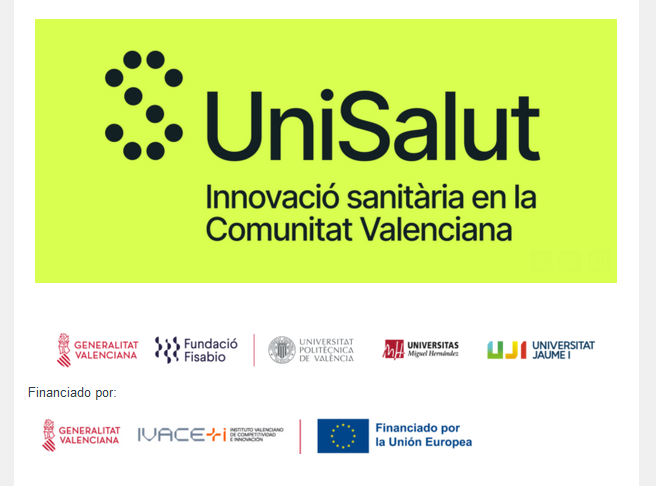
- May 20, 2024
- Hospital General Universitario de Elche.
- Elche (Alicante).
- https://unisalut.uji.es/
Members of the Institute of Bioengineering attended the third creativity and idea generation workshop as part of the UniSalut collaboration project. The workshop goal is to share research lines among researchers from the four entities involved, aiming to generate ideas for projects for the upcoming UniSalut 2024 call.
The event took place on May 20 at the General University Hospital of Elche. During this meeting, the Bioengineering Institute members presented their cross-cutting ideas, aiming to connect with various stakeholders and actors from the Fisabio Foundation. These ideas span different research areas and practical applications in the field of health, promoting interdisciplinary collaboration and knowledge exchange.
The Institute's Director, Prof. Dr. Eduardo Fernández, and Innovation Agent, Dr. Vanessa Zorrilla Muñoz, were present at this event, with Prof. Dr. José María Sabater Navarro playing a key role as an ambassador. Their participation significantly contributed to raising awareness of the various medical and health areas in which the institute operates, emphasizing the importance of research and innovation in developing solutions for the healthcare sector. Thanks to their intervention, collaboration ties with the Fisabio Foundation were strengthened, opening up new opportunities for future joint projects.
News: The Bioengineering Institute at the Forefront of Technology: Prominent Participation in BIEMH 2024

- From 3-7 Jun 2024
- Technology, solutions, level of innovation and exhibition space
- Bilbao
- https://biemh.bilbaoexhibitioncentre.com/
The Bioengineering Institute was present at the Bilbao Exhibition Center in early June, participating in the largest international gathering in the technological and knowledge sectors that sets paradigms for the future of the industry. The Spanish Biennial of Machine-Tool (BIEMH), renowned for its advancements in advanced manufacturing, robotics, digitalization, and additive manufacturing, drew over 38,000 attendees during its five-day duration.
Among them were representatives of the Institute of Bioengineering, who explored the latest innovations and trends in these key areas. In addition to the main exhibition, BIEMH hosted various parallel events such as BIEM Talks, focusing on cutting-edge discussions, Addit 3D for additive manufacturing technologies, BeDigital centered on digital transformation, and Workin addressing future aspects of industry work.
The attendance of the institute's Innovation Agent at this event in Barakaldo not only strengthened the network of potential contacts and collaborations but also provided a valuable opportunity to stay abreast of the latest developments in bioengineering and technology applied to health.
News: The Bioengineering Institute Participation in “Alicante Conexión Salud” Event

- Monday, 10 Jun 2024 09:00 – 15:0
- Congress Center “Ciutat
- 1 Carrer del Filet de Fora 03203 Elx
- https://alicanteconexionsalud.es/
The Bioengineering Institute stood out at the “Alicante Conexión Salud” event. The Third Provincial Innovation Forum focused on Open Innovation in Health, featuring prominent members of the institute
such as Nicolás García, José Ignacio Moreno, Ana Peiró, and Eduardo Fernández.
Recently, IB representatives participated in "Alicante Conexión Salud” an annual meeting aimed at exploring synergies, fostering alliances, and generating new collaboration opportunities among
healthcare professionals and the biotechnological sector, both in business and research.
This event seeks to provide innovative responses to unmet needs in the healthcare sector and aims to engage citizens as potential beneficiaries and patients of the system. The initiative is promoted by the
Department of Health of the General University Hospital of Elche and the Fisabio Foundation, funded by the Valencian Agency of Innovation (AVI) and European funds under project number INNACC/2022/19.
Seminar “Protecting Innovation. Intellectual Property Protection Principles”
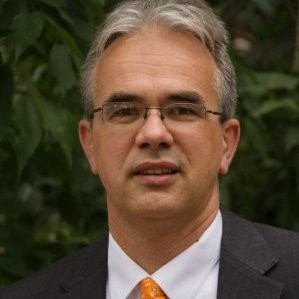
- Seminar
- Dr. Harm Deckers
- Organized by: UMH
- April 26, 2024, 3:00 pm
- Classroom 1.7 of the Altabix-UMH building
Dr. Harm Deckers will give the seminar “Protecting Innovation. Intellectual Property Protection Principles” on April 26th at UMH. This seminar is part of the Master in Biotechnology and Bioengineering of the UMH and will take place in the classroom 1.7 of the Altabix building, at 15h. Dr. Deckers is the President and CEO of HMD Consulting, a firm that provides intellectual property advice and related legal services to technology-focused companies.
Harm Deckers has over 25 years of experience managing intellectual property assets and liabilities in corporate environments. In 1996, Dr. Deckers began his career with a Calgary-based biotechnology company, founding and developing the company’s patent portfolio, which comprised pioneering patents in the agricultural biotechnology space. Subsequently, as a senior executive, he led the leveraging of the corporation’s intellectual property assets to raise over $80 million, achieve a public listing on the Toronto Stock Exchange, as well as raising $10 million in revenue through a series of licensing agreements. Upon leaving the business, Harm Deckers held the position of Vice President of Legal Affairs. In 2012, he established HMD Consulting. Through his firm, Harm Deckers is successfully serving the intellectual property needs of numerous clients in Canada, the United States and Europe.
Seminar “PLANT-BASED FOODS, TRENDS AND CHALLENGES”.
- Seminario
- Dra. Natalia Aparicio
- Organiza: UMH
- 24 de abril 2024, 15:00 h
- Aula 1.7 del edificio de AltabixUMH
- Se podrá seguirse a través de Meet
The seminar will work on the development of vegetable products with improved nutritional profiles that do not compromise the safety, texture and flavor of the final product, using innovative products and ingredients for the food of the future. Dr. Aparicio will talk about new food substitutes for foods of animal origin, with the premise of Clean Label, helping to make these alternatives attractive and convenient for everyone.
Dr. Natalia Aparicio García has a PhD in Food Science from the Universidad Autónoma de Madrid, a Master in Agricultural Chemistry and Novel Foods from the same university and a degree in Food Science and Technology. After 5 years of research experience at the ICTAN and CIAL institutes of CSIC, she has worked in areas such as the development of functional ingredients from plant-based foods, in the revaluation of by-products of the coffee industry, as well as in the evaluation of technological strategies for obtaining a healthy fermented oat drink suitable for celiacs. Since 2021 he has been working at AINIA in the Food Industries Line carrying out R&D projects of various kinds, both national and European. His line of work focuses on the development of ingredients and foods, at all points of the chain, from design to production, mainly in those of plant origin, focusing on the revaluation and added value by improving the nutritional, technological, sensory and bioactive profile from a sustainable perspective.
Seminar “Genome organization and chromosome dynamics during meiosis in wheat in the context of genetic improvement”.
- Seminar
- Dr. Pilar Prieto
- Organized by: IB
- April 19, 2024, 11:00 am
- Auditorium of the Institute for Bioengineering Vinalopó building
Next 19/04/2024, at 11:00 h, a research conference entitled “Genome organization and chromosome dynamics during meiosis in wheat in the context of genetic improvement” will take place in the auditorium of the Institute of Bioengineering, located in the Vinalopó building of the Elche campus, within the program of seminars of the Master in Biotechnology and Bioengineering and the Doctoral Program in Bioengineering. The conference will be given by Dr. Pilar Prieto (CSIC Senior Scientist) from the Institute of Sustainable Agriculture-CSIC, and is organized by Prof. Sara Jover Gil, researcher at the Institute of Bioengineering of the UMH.
Brief description of the talk
“Wheat is one of the most important crops worldwide, but it faces numerous challenges due to the effects of global warming. The main objective of our research line is to contribute to the scientific knowledge of the genome of this strategic crop for its improvement and adaptation to current and future environmental conditions. The development of methodologies and the study of key processes such as meiosis (cell division that generates gametes in organisms with sexual reproduction, which is greatly affected by temperature and ensures plant fertility), can contribute to the improvement of wheat resilience to the effects of global warming. We will delve into critical processes that occur at the onset of meiosis, such as the recognition and association of homologous or equivalent chromosomes, to facilitate chromosomal manipulation for genetic improvement. We will focus on the study of telomeres and subtelomeres, which occupy the distal regions of chromosomes and are directly involved in these processes.”
Other information of interest
Dr. Pilar Prieto graduated in Biological Sciences in 1999 with an extraordinary award. She started her fruitful research career at the University of Cordoba, where she obtained her PhD in Biological Sciences. She has been a “Ramón y Cajal” researcher, and since 2008 she is a CSIC Senior Scientist at the Institute of Sustainable Agriculture, of which she was Vice-Director between 2020 and 2022. Her lines of research range from the genetic improvement of wheat through the introgression of genes of agronomic interest from wild relatives, to the study of meiosis to facilitate interspecific recombination in cereals. His lines of research have received funding through various national and international projects, highlighting two European projects as PI, an ERC-Starting Grant from the European Research Council and an EMBO project from the European Molecular Biology Organisation (EMBO). These lines of work have resulted in almost 60 articles all included in the SCI (Q1) in journals of special relevance and several book chapters. She has been included since 2020 in the ranking of the most cited researchers worldwide by Stanford University. She teaches in two Masters of the University of Cordoba (“Master in Plant Production, Protection and Improvement” and “Master in Molecular, Cellular and Genetic Biotechnology”) and participates in the PhD Program “Biosciences and Agroalimentary Sciences” of the University of Cordoba. She belongs to the international committee “AcademiaNet: Profiles of Leading Women Scientists” of the Swiss National Science Foundation (SNSF) since December 2011, the invitation/selection-only European Network of women of excellence in all scientific fields.
Seminar “Natural nutrients of plant origin and their role in protection against pesticide-induced toxicity”.
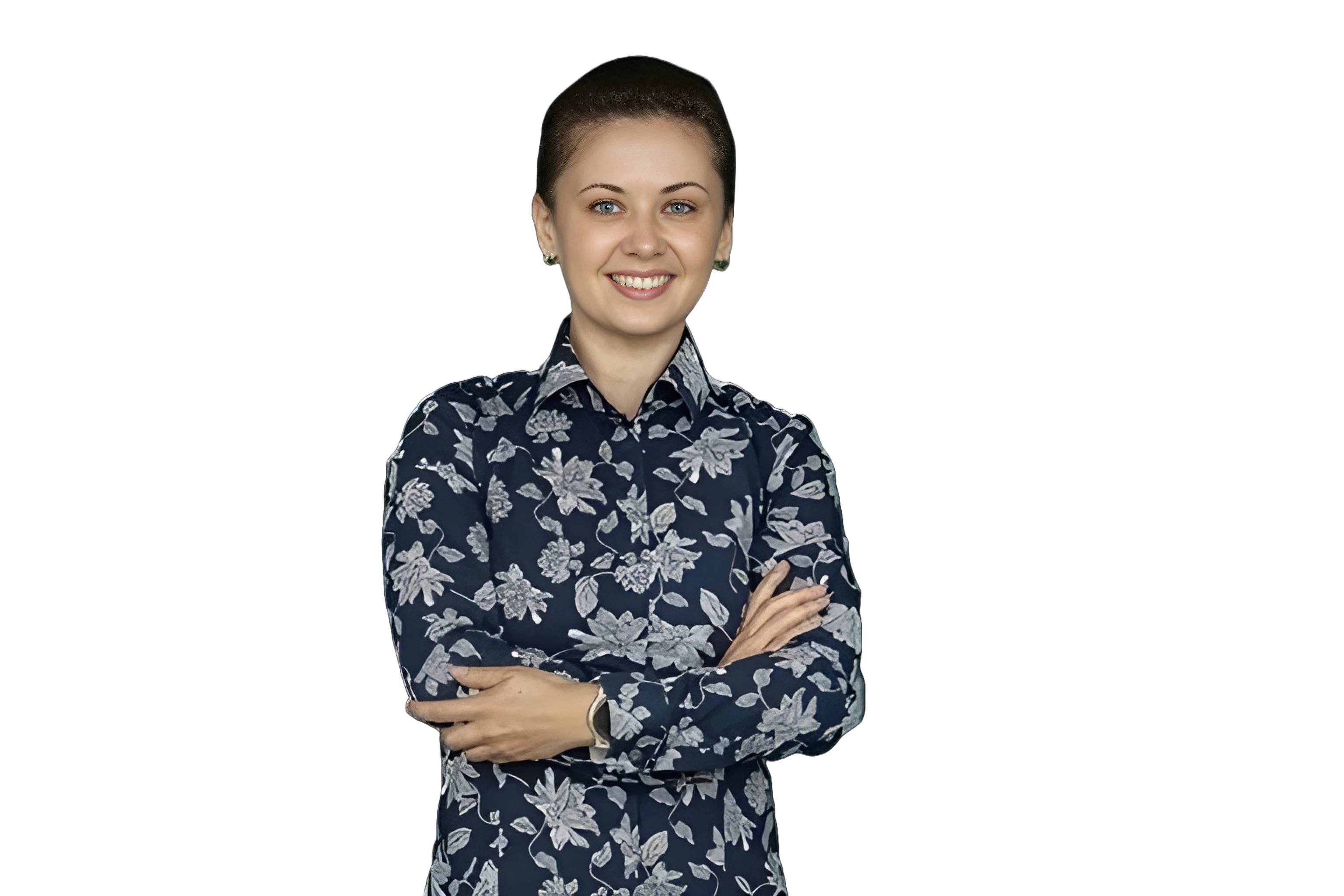
- Seminar
- Dr. Agata Jabłońska Trypuć
- Organizers: IB
- April 18, 2024, 12:00 h.
- Assembly hall of the Institute of Bioengineering Vinalopó building.
Brief description of the talk
The scientific literature describes a robust relationship between exposure to various types of pesticides and the development of chronic diseases, including cancer. The induction of oxidative stress is one of the mechanisms of pesticide toxicity that would be related to such adverse effects. However, many bioactive substances of plant origin have recently been recognized as chemopreventive substances due to their ability to neutralize free radicals generated by pesticides. Such phytochemical compounds must scavenge free radicals, as well as be easily absorbed and function at an adequate physiological level. Their main function is to maintain the redox balance and minimize cell damage caused by ROS, so they must be active in aqueous solutions and/or lipid environments. These properties are fulfilled in phenolic compounds and plant hormones selected for their antioxidant activity with which the negative effects of pesticides could be neutralized, at least in part.”
Other information of interest
Dr. Agata Jabłońska-Trypuć (Bialystok University of Technology, Faculty of Civil Engineering and Environmental Sciences, Department of Chemistry, Biology and Biotechnology, Poland) focuses her research in the field of Environmental and Biomedical Engineering and has published 46 papers. Dr. Agata Jabłońska-Trypuć She is a principal investigator of a research group funded by the Polish Ministry of Science and Higher Education with the aim of developing methods for toxicity testing of xenobiotics present in the environment in various biological models (W/WB-IIŚ/6/2022). He has also evaluated the estrogenic potential of various environmental pollutants for their endocrine disrupting properties (G/WB-IIŚ/2/2021). The main results of her publications are the characterization of the toxicological profile of selected herbicides analyzed using cancer cell lines, the description of molecular mechanisms of herbicide action at the cellular level, as well as the determination of their impact on carcinogenic potential and ecotoxicity in bacteria and fungi. Dr. Agata is a member of the Polish Federation of Biotechnology, the Polish Society of Cell Biology and the Scientific Council of the Research and Science Innovation Center in Lublin (Poland).
Seminar “Present and future of pyrethroid compounds”
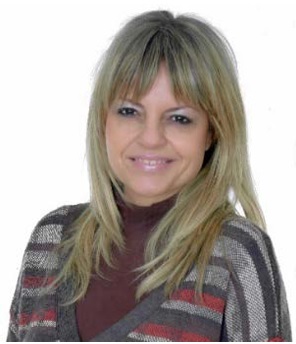
- Seminar
- Dr. María Aránzazu Martínez Caballero
- Organized by: IB
- April 12, 2024, 11:30 am
- Auditorium of the Institute of Bioengineering Vinalopó building
Next 12/04/2024, at 11:30 am, a research conference entitled “Present and future of pyrethroid compounds” will take place in the auditorium of the Institute of Bioengineering, located in the Vinalopó building of the Elche campus, within the program of seminars of the Master in Biotechnology and Bioengineering and the Doctoral Program in Bioengineering. The conference will be given by Dr. María Aránzazu Martínez Caballero (University Professor) of the Complutense University of Madrid, and is organized by Prof. Javier Esteban Mozo, researcher at the Institute of Bioengineering of the UMH.
Brief description of the talk
“Pyrethroids are synthetic derivatives, analogous to natural products called pyrethrins, which exhibit potent insecticidal activity, low mammalian toxicity and short persistence of their residues and are also photostable. The symptoms/signs of acute intoxication induced by pyrethroids in mammals has led to the classification of these insecticides into two classes whose chemical modifications have given rise to Type I or non-cyano pyrethroids causing T-syndrome (“tremor”) and Type II or alpha-cyano called -CS- syndrome (“choreoathetosis and salivation”). Pyrethroids are one of the most widely used insecticides, accounting for approximately 30% of the world market, and their use is increasing after the banning of other insecticides. They are of interest because of their potential presence as residues in the food chain and in the environment, as well as their implications for animal and public health. Chronic exposure to pyrethroids is linked to adverse health effects and their exposure to an increased risk of neurodegenerative diseases is now beginning to be questioned.”
Awards and recognitions
Prof. María Aránzazu Martínez Caballero, holds a PhD in Pharmacy from the Complutense University of Madrid (UCM) and is currently Professor of Toxicology since 2022 at the same university. She teaches in the Veterinary, Human Nutrition and Dietetics, Food Science and Technology and in the Double Degree of Pharmacy and Human Nutrition and Dietetics, as well as in the Masters of Human Nutrition and Applied Dietetics, Neurosciences and Food Industry of the UCM. She focuses her research in the field of Toxicology and Safety of Chemical and Biological Agents. He has supervised 12 doctoral theses and his scientific career includes more than 90 papers published in prestigious and high impact research journals. She has been a member of the Scientific Committee of the Spanish Agency for Consumer Affairs, Food Safety and Nutrition (AECOSAN) and Secretary General and Member of the Board of the Spanish Association of Toxicology (AETOX) and is a European Registered Toxicologist (ERT) since 2022. She is a member of the editorial boards of reputable journals such as Toxicology Mechanism and Methods, Toxicology Report and Frontiers in Veterinary Science (Section of Pharmacology and Toxicology).
She has participated in more than 25 Competitive Projects, being Principal Investigator in 2 of them. He leads the Research Group “Toxicology and Safety of Chemical and Biological Agents”, evaluated by the State Research Agency (AEI) in 2022 as “excellent”. The Research Group has collaborated with numerous International Research Groups and currently the Group is developing with the Department of Pharmacology and Toxicology, Huazhong Agriculture University, Wuhan (Hubei), China, a project on “The mechanism of PGC-1alpha in the neurotoxicity of T-2 toxin through the blood-brain barrier and the excavation of small molecule agonist”. The TOXIAQBI Group is also recognized as a Transversal Group of the Research Institute of the Hospital 12 de Octubre (i+12 Institute) since 2019.
SEMINAR “Declining Scientific Integrity in Current Materials Research: Perspectives and Ideas under the Tip of the Iceberg.”
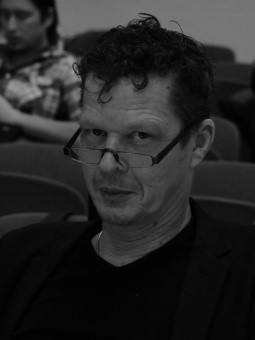
- Seminario
- Dr. Johannes Gierschner
- Organiza: IB
- 22 de marzo 2024, 11:30 h
- Salón de actos del Instituto de Bioingeniería edificio Vinalopó
Next 22/03/2024, at 11:30 am, a research conference entitled “Declining Scientific Integrity in Current Materials Research: Perspectives and Ideas under the Tip of the Iceberg” will take place in the auditorium of the Institute of Bioengineering, located in the Vinalopó building of the Elche campus, as part of the seminar program of the Master’s Degree in Biotechnology and Bioengineering and the PhD Program in Bioengineering. The conference will be given by Dr. Johannes Gierschner from the Madrid Institute for Advanced Studies (IMDEA Nanoscience-Madrid), and is organized by Prof. Fernando Fernández, Professor of Organic Chemistry and researcher at the Institute of Bioengineering of the UMH.
Brief description of the talk
In recent decades, awareness of ‘good scientific practice’ has grown in universities and research institutions, especially with the increase in cases of fraud and plagiarism, as well as conflicts of interest and authorship. Along with this, broader ethical questions have also been raised related to human genetics, animal welfare and data protection, breach of trust or funding, and diversity and gender issues. For these broader ethical concerns, commissions were established and ombudsmen appointed, while for scientific misconduct, protective guidelines are available. In any case, such rules generally focus on the most obvious violations (summarized under the term FFP: falsification, fabrication, plagiarism), while their increasing and systematic occurrence provides evidence of a much deeper and inherent crisis in scientific research and publication. For example, “CV embellishment” through “citation gaming” via “invited” and “hyper “excessive authorship, and “citation cartels”, etc. are raising deep concerns, questioning the concept of quantitative evaluation and threatening the business model of data providers.
The seminar is intended to shed light on these less obvious, but more fundamental, aspects of scientific misconduct, being the fertile soil in which the most apparent violations proliferate. Delving beyond the ‘tip of the iceberg’, we will argue that this soil is conditioned by social assumptions that, partly inadvertently, foster crisis through an ‘economization dictum’. This erodes the self-conception of science and its distinction from (particularly applied) research. We will show how this permeates not only the questionable practice of self-promotion and hyper-excitement of research, but also infiltrates the minds of researchers to corrode the basis of scientific thinking and work. To this end, we will discuss examples from current research in materials or chemistry to see how this causes more serious violations of scientific integrity. With this in mind, we will finally outline fundamental elements of good scientific practice as guidelines for daily work, addressing especially young researchers.”
Awards and recognitions
JG obtained his PhD in Physical Chemistry at the University of Tübingen (UT; 2000). After stays at UT (2000-04), University of Mons (Belgium 2004-07) and Georgia Institute of Technology (GeorgiaTech, USA, 2005), he joined IMDEA Nanoscience in 2008 as Senior Research Professor. In 2014, he qualified at UT and has been Assistant Professor (Privatdozent) since then.
His 150 papers (11000 citations, h = 53) are devoted to integrative spectroscopic and computational spectroscopic research on organic conjugated materials for optoelectronics and energy conversion. JG has presented his work in 100 talks at international conferences (40 invited) and 90 invited seminars at research institutes. He has coordinated several European and national projects. JG has held a visiting research position (regular) at the University of Valencia (UV; 2008-2010) and Ulsan National Institute of Science & Technology (UNIST, Ulsan, South Korea, 2016-2019), and as an assistant professor at Seoul National University (SNU; 2014/15) and Mons University (2014/15).
“Phillip N. Benfey” Plenary Conference
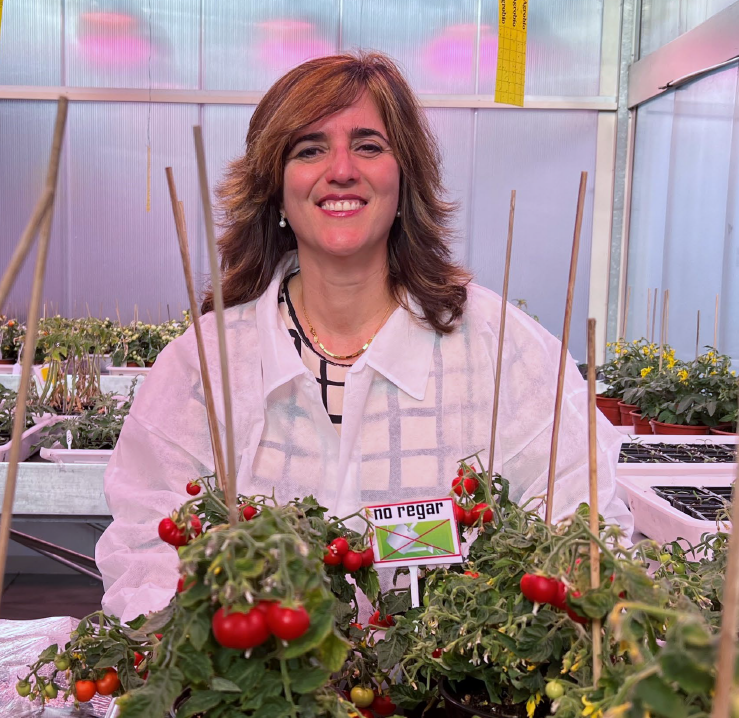
-
When is it? Friday, March 22nd
-
What time? At 12:00 noon
-
Where? Quorum Building (See location)
-
How do I register? Attendance is free, prior registration HERE
It is held within the framework of the first scientific meeting of the thematic network “Roots for the future (RED2022-134836-T)” funded by the State Research Agency.
Dr. Ana I. Caño-Delgado will be in charge of giving this conference, which will deal with the analysis of Arabidopsis roots to create crops more resistant to climate change. In this regard, this researcher of the Spanish National Research Council (CSIC) is director of the group “Brassinosteroid signaling in plant development and adaptation to climate change of the Center for Research in Agricultural Genomics (CRAG) in Barcelona.
Specifically, this group works to design crops capable of growing under drought conditions. These achievements are the result of two decades of studies on plant steroid hormones, brassinosteroids, in which she is a pioneer in the study of signaling mechanisms at the cellular level. Her team discovered that vascular brassinosteroid receptors confer drought resistance without penalizing growth.
In the current context of climate emergency, Dr. Caño-Delgado is translating her scientific results to crops to ensure food security.
Translated with DeepL.com (free version)
Seminar “Functional molecular systems by self-assembly”

- Seminar
- Dr. David González Rodríguez
- Organized by: IB
- March 8, 2024, 11:30 am
- Auditorium of the Institute for Bioengineering Vinalopó building
Next 8/03/2024, at 11:30 am, will take place in the auditorium of the Institute of Bioengineering of the Miguel Hernández University of Elche, located in the Vinalopó building of the campus of Elche, a research conference entitled “Functional molecular systems by self-assembly” within the program of seminars of the Master of Biotechnology and Bioengineering and the PhD Program in Bioengineering. The lecture will be given by Dr. David González Rodríguez, Professor of Organic Chemistry at the Universidad Autónoma de Madrid, and is organized by Prof. Ángela Sastre Santos, Professor of Organic Chemistry and researcher at the Institute of Bioengineering of the UMH.
Brief description of the talk
Focused on the fundamental study of non-covalent interactions and molecular self-assembly, Supramolecular Chemistry is an important research discipline that reaches its full potential when directed at solving relevant and complex problems in other fields. After all, interactions between molecules are ubiquitous in areas spanning Chemistry (catalysis, polymers, medicinal chemistry, etc.), Physics (solar cells and organic transistors), and Biology (biomedicine, biochemistry, …).
The objective of the research developed in the Nanostructured Molecular Materials and Systems research group is focused on improving or creating new functions in organic systems and materials through the rational arrangement of molecules at the nanoscale, making use of the tools of molecular self-assembly.
This lecture will focus, in particular, on:
1) The understanding and control of cooperative phenomena that give rise to multicomponent cyclic non-covalent assemblies based on Watson-Crick type hydrogen bonding interactions between nucleic bases.
2) The development of versatile and unconventional strategies towards supramolecular polymers with a tubular structure, endowed with customized pores compatible with molecular dimensions.
3) The generation, through dynamic covalent chemistry and chemical receptor-like properties, of new bisporphyrin “molecular boxes”.
Seminar “Different problems, different approaches: from mussel to dolphin”.
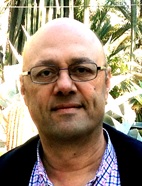
- Seminar
- Dr. Diego Romero García
- Organized by: IB
- February 16, 2024, 12:00 pm
- Auditorium of the Institute for Bioengineering Vinalopó building
Next 16/02/2024, at 12:00 h, will take place in the auditorium of the Institute of Bioengineering, located in the Vinalopó building of the Elche campus, a research conference entitled “Diverse problems, diverse approaches: from the mussel to the dolphin” within the program of seminars of the Master in Biotechnology and Bioengineering and the PhD Program in Bioengineering. The lecture will be given by Dr. Diego Romero García (University Professor) from the University of Murcia, and is organized by Prof. Miguel Ángel Sogorb Sánchez, researcher at the Institute of Bioengineering of the UMH. Prof. Diego Romero García focuses his research in the field of toxicology, has published 60 papers and has an h-index of 19.
Brief description of the talk.
“In this talk we will consider different problems to be addressed, from the point of view of Toxicology, in different marine species. Each species or group of species has specific problems related to marine pollution, due to the place where they live, feeding or conservation status. Therefore, it is necessary to approach each study with a particular perspective, which allows to obtain the maximum of information to make an adequate management of these problems.”
Seminar “Function of the SWI/SNF chromatin remodeling complex in plants”.
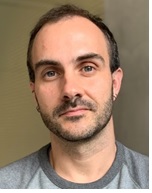
- Seminar
- Dr. Javier Gallego Bartolomé
- Organized by: IB
- February 2, 2024, 12:00 pm
- Auditorium of the Institute of Bioengineering Vinalopó building
0n 02/02/2024, at 12:00 h, will take place in the auditorium of the Institute of Bioengineering, located in the Vinalopó building of the campus of Elche, the research conference entitled “Function of the SWI/SNF chromatin remodeling complex in plants” within the program of seminars of the Master of Biotechnology and Bioengineering and the PhD Program in Bioengineering. The conference will be given by Dr. Javier Gallego Bartolomé (CSIC Senior Scientist), director of the Epigenetic Regulation of Gene Expression group of the Institute of Plant Molecular Biology (UPV/CSIC, Valencia), and is organized by Prof. José Manuel Pérez Pérez, Professor of Genetics and researcher at the Institute of Bioengineering of the UMH.
Understanding the function of a SWI/SNF chromatin remodeler in plants
Summary of the talk: Over millions of years, eukaryotes evolved from unicellular to multicellular organisms with increasingly complex genomes and sophisticated gene expression networks. Consequently, chromatin regulators evolved to support this increased complexity. The ATP-dependent chromatin remodelers of the SWI/SNF family are multiprotein complexes that modulate nucleosome positioning and appear under different configurations, performing distinct functions. A recent comprehensive phylogenetic analysis of the conservation of SWI/SNF subunits across eukaryotes allowed us to unravel an uncharacterized SWI/SNF complex in plants. The functional characterization of this remodeler by diverse genomics approaches indicates that it plays an important function in the control of nucleosome positioning and in the selection of the transcription initiation site over thousands of genes.
Javier Gallego-Bartolomé is an Agronomical Engineer who graduated from the Polytechnic University of Valencia. He pursued his doctoral studies in the laboratory of Miguel Blázquez and David Alabadí at the IBMCP in Valencia, where he developed a keen interest in the environmental regulation of gene expression. Subsequently, he relocated to California to conduct research in the Chory lab at the Salk Institute in San Diego and the Jacobsen lab at UCLA in Los Angeles, specializing in chromatin regulation and epigenome engineering. Since 2020, he has been leading a research team at the IBMCP in Valencia, initially as a Ramón y Cajal researcher and more recently as a CSIC researcher. His laboratory primarily focuses on the epigenetic regulation of gene expression, with a significant emphasis on chromatin remodeling. For more information visit: https://jagalbar.wixsite.com/gallego-bartolome.
Seminar “Formulation of fermented milks from goat milk with natural probiotics from human breast milk: interest in disease prevention in today’s society”.
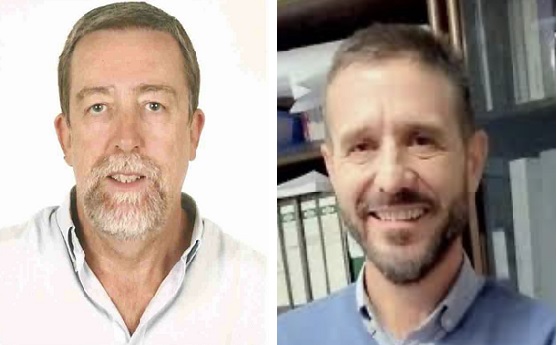
- Seminar
Drs. Manuel Olalla Herrera and Rafael Jesús Giménez Martínez
Organized by: IB
January 19, 2024, 11:30 am
IDiBE Von Humboldt Seminar Room, Torregaitán-UMH Building
On 19/01/2024, at 11:30 am, a research conference entitled “Formulation of fermented milks from goat milk with natural probiotics from human breast milk: interest in the prevention of diseases in today’s society” will be held in the auditorium of the Institute of Bioengineering, located in the Vinalopó building of the Elche campus, as part of the program of seminars of the Master of Biotechnology and Bioengineering and the Doctoral Program in Bioengineering. The conference will be given by Professors Rafael Jesús Giménez Martínez and Manuel Olalla Herrera, Professor and University Professor, respectively, from the Department of Nutrition and Bromatology, Faculty of Pharmacy of the University of Granada (UGR). Prof. Olalla is also the coordinator of the Official Master of the UGR “Advances in Food Quality and Technology”. This conference is organized by Prof. Elena García, researcher at the Institute of Bioengineering of the UMH.
Brief description of the talk
“In recent years, research on probiotic microorganisms and their benefits (intestinal ecology, bioactive compounds…) has been developed. Many of these microorganisms are found in breast milk and that this is the most natural way to feed the newborn, allowing normal growth and development, in addition to containing compounds with biological activity that are of interest in the prevention of diseases in the medium or long term.
The dairy industry has developed milk formulas capable of substituting or complementing breast milk, with goat’s milk gaining special interest over cow’s milk. This milk is more digestive and presents fewer problems of allergies and intolerances. It has also aroused nutritional interest due to the presence of bioactive peptides with immunomodulatory, anti-inflammatory, antimicrobial or hypocholesterolemic activity. The project evaluates the bioactive potential and bioavailability after digestion of the compounds present in human milk, taking this food as a reference standard to develop foods based on goat’s milk, which after fermentation with strains of microorganisms isolated from breast milk is analyzed for the presence of bioactive compounds and evaluated for its potential health benefits. The results of the project will enable the formulation of fermented milks and establishment of the corresponding nutritional labeling and relevant health claims in accordance with EFSA (European Food Safety Authority).”
Seminar “Lyophilization and its application in PCR diagnostic kits”.
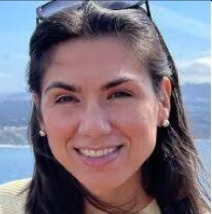
- Seminar
- Dra. María Badal Tejedor
- Organized by: IB
- January 12, 2024, 11:30 am
- IDiBE Von Humboldt Seminar Room, Torregaitán-UMH Building
Next January 12, at 11:30h, a research conference entitled “Lyophilization and its application in PCR diagnostic kits” will take place in the Von Humboldt seminar room of IDiBE, located in the Torregaitán building of the Elche campus, within the program of seminars of the Master in Biotechnology and Bioengineering and the PhD Program in Bioengineering. The conference will be given by Dr. María Badal Tejedor, from the company Cepheid, and is organized by Prof. Enrique Roche Collado.
Brief description of the talk
“In certain pathologies, early diagnosis and in-situ results are essential. In this case, PCR molecular diagnostic tests require a comprehensive and easy to use system where the necessary temperature conditions, reagents and sample converge, and the reading of the result is fast. This method and detection system requires reagents of a biological nature in their active and stable form. For this, the biological components must be in solid form to ensure their stability at the time of use. Therefore, the biological material initially present in an aqueous solution must be dried without being exposed to high temperatures that would cause its inactivation. For this purpose, the freeze-drying process in the form of beads is essential. In this process the components are solidified and the aqueous medium is removed at freezing temperature. The freeze-drying process is complex and expensive, and its optimization is based on a detailed analysis of the behavior of the components in solution at certain pressure and temperature conditions.”
